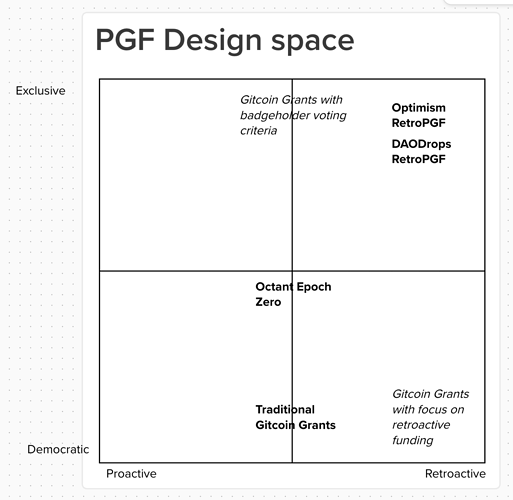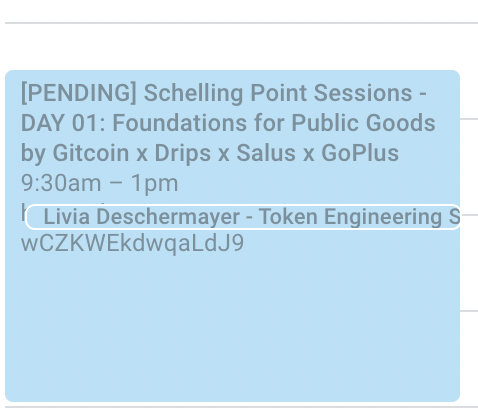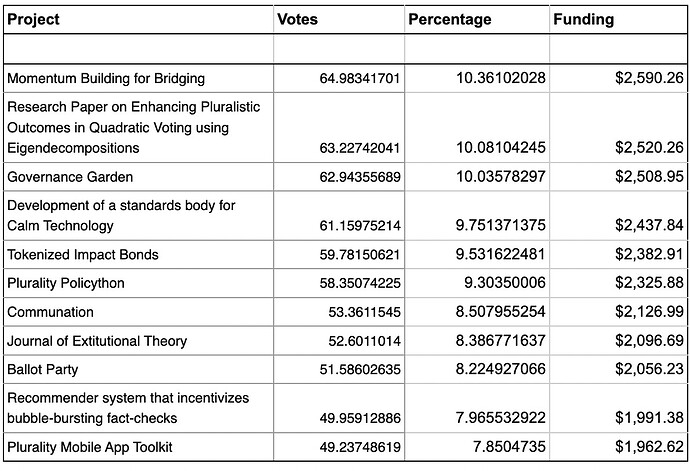Note: I encourage others who were in Paris to post their own reflections below so that we have a record of key takeaways and learnings from our time there (such as @Viriya @0xZakk @alexalombardo @meglister @kyle @azeem @carlosjmelgar and any others on the core team or in the community such as grantees, sponsors, attendees, etc.).
Below are notes of thoughts/reflections from my time spent in Paris. The intention of this post is multifold:
- To share learnings with the broader community
- To rally my fellow contributors to see the value in continuing to attend IRL events
- As a self-reflection in hopes of continuing to host/plan future events that meet organizational goals
All of the notes below are from the perspective of CoachJ as:
- A marketer of our products
- An ambassador of our brand
- A planner of events (logistics)
I’ve kept this all in point form to make reading as easy and concise as possible.
Funding the Commons
Key takeaways:
- Having a booth at the right events is one of the best ways for us to promote our products
- Clear “So what/follow-up” needs to be ready at the booth for any conversation (TG groups for our products, link to grantee portal and program details, etc.)
Full notes:
- Our most successful part of being in Paris - talking to “our people” and exposing them to our new initiatives
- Having a booth is a key way to get exposure vs. simply being present at an event
- Combined with speaker slots, powerful combo
- We had a good booth setup, one of the challenges was finding a balance for manning the booths vs. being in convo with attendees vs. going to talks
- No merch was given away, only stickers - still a big hit
- My POV is that merch is meant to reward our community members and biggest fans, many folks at conferences simply collect things because they’re free
- Ex of above: we had 3 print outs of each of our 1-pagers - within 15 mins 2 of 3 copies were taken, not necessarily by folks interested in the products, but simply taking them because they were takeaways
- Folks were looking for a “What’s next” at the booth - would be great to have a QR code to a TG group (or something like this) that they can scan to continue the convo
- We mostly featured our products, but a number of folks approached us interested in learning more about applying as a grantee to the program
- It was important to have knowledge experts present to answer some questions - as a marketer, I felt unprepared to engage in more technical questions/conversations
- I wonder if we could have gotten the same sponsorship package for less $ - the most important thing was that we had some sort of presence
Schelling Point Sessions
Key takeaways
- Unconference style wins over talks, people are looking for meaningful interactions and connections above all
- Timing of events is still a mystery - how do we get folks to show up (on time) when the event starts?
- Events like these are beloved by attendees and highly valued by orgs (they are willing to pay to have a seat at the table) - how do we leverage our brand equity to break even/make money on these events?
- Our biggest challenge will continue to be measuring ROI on these events
Full Notes:
- Cost was around $30k for Opex and $50k including wages/time spent
- Sponsorships total was $30k raised
- All in all, strong brand activation with very positive associations to Gitcoin
- Morning events started a bit too early (9:30am) - most people arrived at around 11am - I’m curious if starting later = more people showing up, or people just showing up later (folks were also showing up at 6pm for 5-7pm evening events)
- RSVPs were 3-4x how many people showed up - could be because of distance (20 mins from venue) or FOMO of other EthCC events
- Folks are often cruising through events looking for where “the party is at” for evening events
- Moving forward, I would focus less on evening events, more of day-time convos - evening events are also where most of the $ expenses come from
- Best convos were facilitated chats, least engaging were presentations w/ Q&A
- Sponsors were generally thrilled with how things went - plug and play situation for them was very much appreciated and all have expressed interest in working with us again
- The house worked well as a Schelling Point for regens, with people dropping in and out all day - this made for a very casual vibe where everyone could enjoy themselves and connect
- Didn’t focus on our products enough (will do this next time)
- Lots of opportunities to experiment with this format, including GTC staking, planning events on behalf of sponsors “renting out” a spot in the program
Final notes
- Still wondering how to justify ROI of these events
- Most events across the board (beyond ours) were oversubscribed and under attended (it wasn’t just us)
- It’ll be good to get clear on our objectives - letting our existing audience know about our new products OR expand to new audiences OR something else - doing a “yes, and” will dilute our attention/the power of our messaging
- Our best value imo is booth + speaker slot at targeted conferences, paying as little $ as possible for as much exposure as possible


